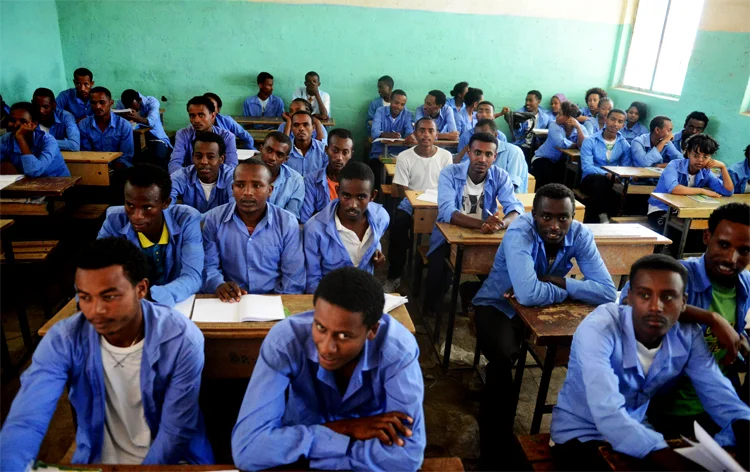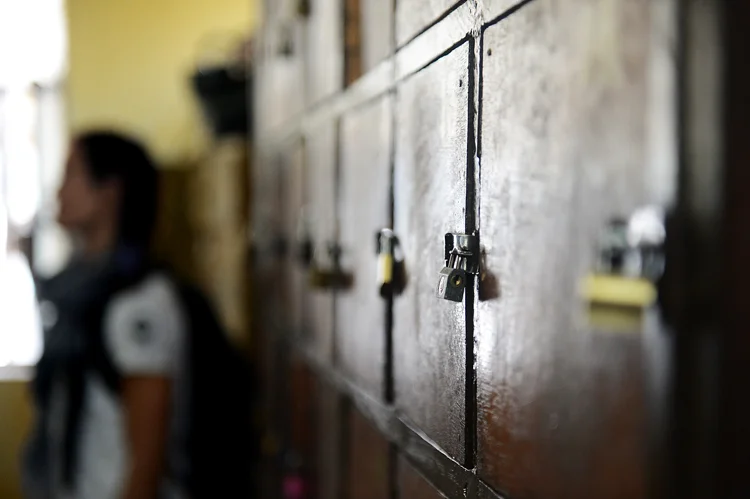ethiopia part 3: kids, schools and education
The highlight of my visit to Ethiopia had to be visiting the various schools and childrens' homes that were a liberal part of our agenda. Here's a pro tip: if you're ever in a country that feels completely foreign, find a spot where there are children, and close your eyes. There is something so universal about the sounds of kids' laughter (and even their tears) that you will immediately feel like you are somewhere where you belong. And when you open your eyes and see their sweet faces, you'll know it to be true.
Our first visit was to an incredible organization, Mary Joy Aid Through Development, an organization that helps mostly kids (but also families) who have been affected by HIV/AIDS. Unlike the remaining organizations that we visited in Ethiopia, this group does not receive any international government aid -- it's all privately funded. It's really interesting as well: the kids who live here, many of whom lost their parents to HIV/AIDS, have "peer mothers" -- women who take care of a group of the children as if they were their own. The happy result is that with this focused love and attention, many of them are thriving. The kids put on a wonderful singing, dancing and acrobatic show for us, and the joy with which they performed was contagious:
In fact, it was so contagious, we couldn't help but join in:
And finally, the peer mothers taught us that no celebration is complete without a coffee ceremony:
Mary Joy is a truly joyous place. And again, they do not receive outside international governnment aid, so if you'd like to sponsor a child, click here to learn more.
* * * * * * * * *
On our third day, we traveled to Mojo, to visit both a primary school and a secondary government school that was supported, in part, by DFID, the Department for International Development in the United Kingdom. If there was ever an example of taking a little and turning it into a lot, it is these schools: the secondary school, for example, received only about $6000 per year during the last 5 years, and in that time, it went from having only a 20-something-percent pass rate for university entrance exams to over 90%. Fabulous.
Some of my favourite images from the secondary school:
The school didn't have a lot of money for teaching supplies, so some of the lessons were turned into detailed murals on the sides of the buildings.
And the primary school, unsurprisingly, was even more vibrant!
The teachers we met at these Mojo schools (not to mention the kids) fill me completely with hope. I had no doubt that these young people, with the meteoric rise in their test scores and their vibrant school life, are the promising future of Ethiopia.
* * * * * * * *
The last organization we visited was a Girls' Support Group, supported by the Population Council. It seems that there are many girls -- some as young as 6 -- who leave the rural areas and come to Addis Ababa for work as domestics. They are often treated very poorly, and if things really don't work out, they are forced to go to the streets to beg. Furthermore, because they are working as domestics during the day, they are unable to attend school.
This organization finds these vulnerable kids, and negotiates with their employers to teach them fundamentals -- reading and writing, yes, but also personal hygiene, how to keep themselves from being vulnerable to sexual and physical abuse, and so on. This organization meets in a government building in a slum in Addis, but behind its gates, is a haven: I was so moved by the kindness and respect that each mentor, without exception, treated the young girls, who ranged in age from about 6 to 23.
Clearly, there is much work to do to help some of the most vulnerable people on our planet -- but the good news? So much work is also being done. And when you see these beautiful faces, you realize that we can't stop -- we have to keep caring about our brothers and sisters who share this beautiful Earth with us.
And speaking of faces: tomorrow, I'll share the most amazing faces of the people who allowed me to take their portraits.
Until then, friends.
__________________
I spent last week in Ethiopia at the kind invitation and expense of The ONE Campaign,
a nonpartisan, advocacy organization dedicated to the fight against
extreme poverty and preventable disease, particularly in Africa. ONE
works to convince governments to invest in smart programs that help
eliminate poverty and preventable disease in a sustainable way. I was supporting a group of parenting bloggers
by capturing images that tell the story of how the organizations for
which ONE advocates are effecting real change in Ethiopia.
If you're moved by anything you read or see here, on the ONE blog
or any of the ONEMoms' blogs and you'd like to help, please consider
adding your voice, and join ONE by simply filling out the surprisingly
short form in my sidebar on the right, or the form below.
Your information will remain confidential, I promise. And if you're
already a member, and would still like to help, I'd love if you'd spread
the word by sharing this post with your friends and followers.
That's all there is to it. Because ONE never asks for your money, just your voice.

























